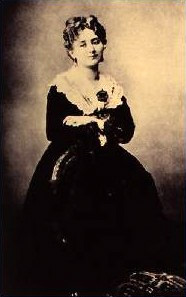Marcel Proust
Marcel Proust (10 July 1871 – 18 November 1922) was a French novelist, critic, and essayist best known for his monumental novel À la recherche du temps perdu (In Search of Lost Time; earlier translated as Remembrance of Things Past), published in seven parts between 1913 and 1927. He is considered by critics and writers to be one of the most influential authors of the 20th century.
Biography[edit | edit source]
Marcel Proust was born in Auteuil (the southern sector of Paris's then-rustic 16th arrondissement) at the home of his great-uncle, two months after the Treaty of Frankfurt formally ended the Franco-Prussian War. His father, Adrien Proust, was a prominent pathologist and epidemiologist, studying cholera in Europe and Asia; his mother, Jeanne Clémence Weil, was of a wealthy Jewish family. Raised in his father's Catholic faith, Proust became an agnostic later in life.
Proust suffered from severe asthma throughout his life, a condition that also shaped his social life and writing. He was educated at the Lycée Condorcet and later studied at the École des Sciences Politiques. Despite his poor health, Proust served as a volunteer during the First World War.
Literary Work[edit | edit source]
Proust began his literary career with the publication of Les Plaisirs et les Jours (Pleasures and Days) in 1896, a collection of short stories, poems, and essays. However, it was À la recherche du temps perdu that cemented his place in literary history. This sprawling novel explores themes of memory, time, and identity, famously exemplified by the "madeleine episode" in the first volume, Swann's Way, where the taste of a madeleine cake dipped in tea evokes involuntary memories of the narrator's childhood.
The novel's narrative technique, known as stream of consciousness, its exploration of the psychological depths of its characters, and its reflection on the nature of art and the artist have influenced countless writers and thinkers. Proust's use of detailed description and his exploration of the subjective experience have made him a precursor to modernist literature.
Legacy[edit | edit source]
Marcel Proust's influence extends beyond the realm of literature into philosophy, psychology, and the arts. His examination of memory and time has inspired numerous scholarly works, and his narrative techniques have influenced a wide range of writers, from Virginia Woolf to James Joyce. Proust's work has also been adapted into various forms, including films, plays, and visual arts.
Despite his health challenges, Proust was a fixture of Parisian high society, and his observations of the social mores and hypocrisies of his time add a rich sociological layer to his literary work. His insights into love, jealousy, and desire are as relevant today as they were in his time.
Selected Works[edit | edit source]
- Les Plaisirs et les Jours (1896)
- À la recherche du temps perdu (1913–1927)
- Swann's Way (1913)
- Within a Budding Grove (1919)
- The Guermantes Way (1920–1921)
- Sodom and Gomorrah (1921–1922)
- The Prisoner (1923)
- The Fugitive (1925)
- Time Regained (1927)
See Also[edit | edit source]
This article is a literature-related stub. You can help WikiMD by expanding it!
Search WikiMD
Ad.Tired of being Overweight? Try W8MD's physician weight loss program.
Semaglutide (Ozempic / Wegovy and Tirzepatide (Mounjaro / Zepbound) available.
Advertise on WikiMD
|
WikiMD's Wellness Encyclopedia |
| Let Food Be Thy Medicine Medicine Thy Food - Hippocrates |
Translate this page: - East Asian
中文,
日本,
한국어,
South Asian
हिन्दी,
தமிழ்,
తెలుగు,
Urdu,
ಕನ್ನಡ,
Southeast Asian
Indonesian,
Vietnamese,
Thai,
မြန်မာဘာသာ,
বাংলা
European
español,
Deutsch,
français,
Greek,
português do Brasil,
polski,
română,
русский,
Nederlands,
norsk,
svenska,
suomi,
Italian
Middle Eastern & African
عربى,
Turkish,
Persian,
Hebrew,
Afrikaans,
isiZulu,
Kiswahili,
Other
Bulgarian,
Hungarian,
Czech,
Swedish,
മലയാളം,
मराठी,
ਪੰਜਾਬੀ,
ગુજરાતી,
Portuguese,
Ukrainian
Medical Disclaimer: WikiMD is not a substitute for professional medical advice. The information on WikiMD is provided as an information resource only, may be incorrect, outdated or misleading, and is not to be used or relied on for any diagnostic or treatment purposes. Please consult your health care provider before making any healthcare decisions or for guidance about a specific medical condition. WikiMD expressly disclaims responsibility, and shall have no liability, for any damages, loss, injury, or liability whatsoever suffered as a result of your reliance on the information contained in this site. By visiting this site you agree to the foregoing terms and conditions, which may from time to time be changed or supplemented by WikiMD. If you do not agree to the foregoing terms and conditions, you should not enter or use this site. See full disclaimer.
Credits:Most images are courtesy of Wikimedia commons, and templates, categories Wikipedia, licensed under CC BY SA or similar.
Contributors: Prab R. Tumpati, MD






